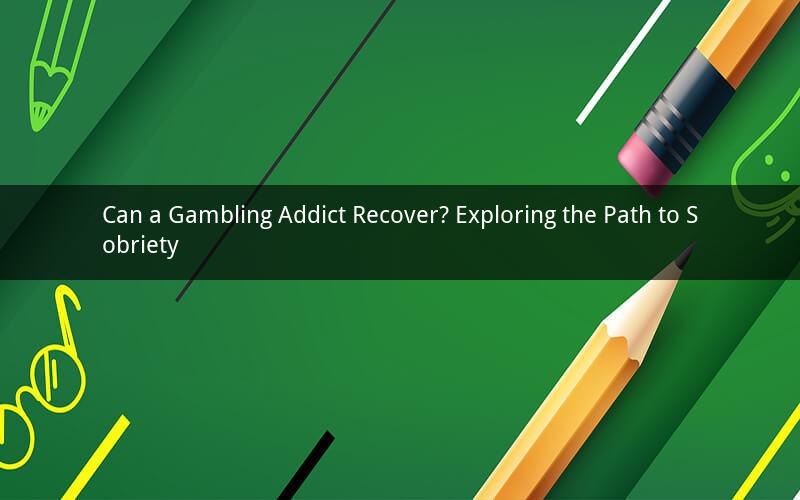
The allure of gambling is undeniable, offering a thrilling escape from the mundane. However, for some individuals, this pastime can spiral into a destructive addiction. The question that haunts many is: can a gambling addict recover? This article delves into the complexities of gambling addiction, the signs and symptoms, and the potential for recovery.
Understanding Gambling Addiction
Gambling addiction, also known as problem gambling, is characterized by an uncontrollable urge to gamble, despite the negative consequences. It is a form of impulse control disorder, often stemming from underlying psychological issues. Recovery from gambling addiction involves recognizing the problem, seeking help, and implementing strategies to overcome the compulsion.
Signs and Symptoms of Gambling Addiction
Identifying a gambling addiction can be challenging, as it often progresses in stages. The following signs and symptoms may indicate that someone is struggling with a gambling problem:
1. Preoccupation with gambling: Constant thoughts about gambling, planning the next session, or reliving past experiences.
2. Inability to control gambling: Continued gambling despite promises to stop or the negative consequences it brings.
3. Lying to hide gambling activities: Deceiving loved ones, employers, or financial institutions to cover up gambling debts.
4. Risking more money: Increasing bets to try and recoup losses or win back money.
5. Financial problems: Difficulty managing finances, accumulating debt, or even losing one's home due to gambling.
6. Emotional and physical health issues: Anxiety, depression, sleep disturbances, and other health problems related to stress and guilt.
7. Legal issues: Engaging in illegal activities to fund gambling or facing legal consequences due to gambling-related behavior.
The Path to Recovery
Recovery from gambling addiction is possible, but it requires dedication, commitment, and the right support. The following steps can help individuals overcome their gambling problem:
1. Acknowledge the problem: The first step towards recovery is admitting that gambling has become a problem. This involves accepting the negative consequences and the need for change.
2. Seek professional help: A therapist, counselor, or psychiatrist can provide guidance and support throughout the recovery process. They can help identify underlying issues and develop a tailored treatment plan.
3. Join a support group: Support groups such as Gamblers Anonymous can provide a sense of community and understanding among individuals who share similar experiences.
4. Create a financial plan: Work with a financial advisor or therapist to address gambling-related debt and develop a budget to prevent future problems.
5. Develop healthy coping mechanisms: Find alternative activities that can help fill the void left by gambling, such as exercise, hobbies, or spending time with loved ones.
6. Monitor progress: Regularly assess one's progress and adjust the recovery plan as needed. This may involve seeking additional therapy, attending support group meetings, or making lifestyle changes.
5 Frequently Asked Questions about Gambling Addiction Recovery
1. Q: Can a gambling addict recover on their own?
A: While some individuals may manage to overcome their addiction without professional help, the chances of long-term recovery are significantly higher with the support of a therapist, counselor, or support group.
2. Q: How long does it take to recover from a gambling addiction?
A: The duration of recovery varies from person to person. Some may find relief within a few months, while others may require years of treatment and support.
3. Q: Can someone who has recovered from gambling addiction relapse?
A: Yes, relapse is a possibility, especially in the early stages of recovery. However, recognizing the signs of a relapse and seeking help promptly can prevent a full-blown recurrence.
4. Q: Is there a medication to treat gambling addiction?
A: There is no specific medication for gambling addiction, but certain medications may help manage underlying psychological issues that contribute to the addiction, such as depression or anxiety.
5. Q: Can a gambling addiction be passed down genetically?
A: There is evidence to suggest that genetics may play a role in the development of gambling addiction. However, environmental factors, such as exposure to gambling and mental health issues, also contribute significantly to the risk of developing an addiction.
In conclusion, recovery from gambling addiction is a challenging but achievable goal. By recognizing the problem, seeking professional help, and implementing strategies to overcome the compulsion, individuals can regain control of their lives and find hope for a better future.